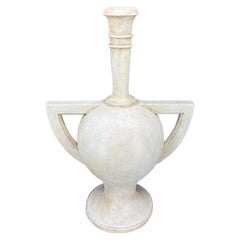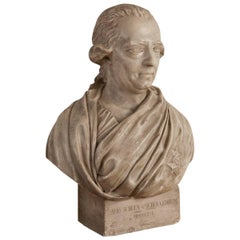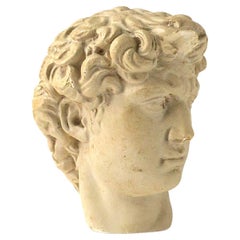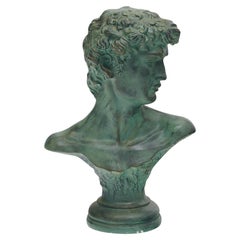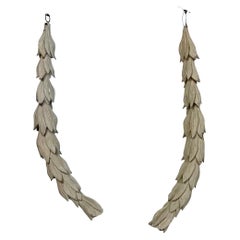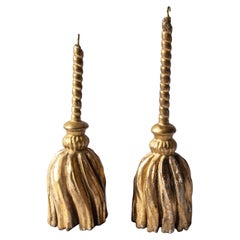Gustavian Figurative Sculptures
With clean lines and muted colors, antique Gustavian furniture is understated and elegant. It represents a more restrained version of the transition from Rococo to neoclassicism that was happening in France under Louis XVI. The style developed under Swedish King Gustav III, who reigned from 1771 until his assassination in 1792, and his son Gustav IV, who ruled until 1809. Although Gustavian furniture is mostly used to refer to pale painted cabinets, commodes, armchairs and other items, it involved a range of influences.
Gustavian-style furniture was inspired by discoveries at Pompeii and Herculaneum as well as the grandeur of European palaces like Versailles, with local softwoods such as pine and birch. There was also an emphasis on natural light; crystal chandeliers and large mirrors played a role in radiating the fleeting daylight of winter, giving it a distinctive aesthetic.
Where earlier furniture was curvy and florid, this new era was more architectural, with tapered and fluted legs and rectangular and oval shapes. Luminous gilt contrasted with the palette of soft blues on upholstery and painted surfaces. Leading furniture builders included Gottlieb Iwersson, Louis Masreliez and Erik Öhrmark. The latter, a French-born Swedish decorator, designed the Sulla chair, a seat that was demonstrative of technical skill and precise craftsmanship and drew on Greek klismos chairs. Masreliez’s Sulla chair was made by Öhrmark and featured decorative ornamentation produced by Jean-Baptiste Masreliez, Louis’s younger brother.
While the wealthy had furniture carved with neoclassical details like scallops and rosettes, more affordable options were adorned with faux finishes that mimicked marble and stenciled patterns. The simple elegance of Gustavian furniture would have a long impact on Swedish design, informing the 20th-century appreciation for function and form. In the 1950s, IKEA mass-produced copies of a Gustavian commode designed by cabinetmaker Georg Haupt, who created pieces for the Royal Palace, making the furniture a fixture of everyday Swedish life.
Find a collection of antique Gustavian seating, tables, decorative objects and other furniture on 1stDibs.
20th Century European Gustavian Figurative Sculptures
Wood, Paint
Early 19th Century Antique Gustavian Figurative Sculptures
Plaster
Mid-20th Century Gustavian Figurative Sculptures
Composition
1930s Italian Vintage Gustavian Figurative Sculptures
Terracotta
1940s American Vintage Gustavian Figurative Sculptures
Cement
2010s Brazilian Gustavian Figurative Sculptures
Crystal, Quartz, Rock Crystal
Late 19th Century Italian Antique Gustavian Figurative Sculptures
Plaster
19th Century Italian Antique Gustavian Figurative Sculptures
Tôle
2010s Brazilian Gustavian Figurative Sculptures
Crystal, Quartz, Rock Crystal
1990s Italian Gustavian Figurative Sculptures
Stone
Late 20th Century Italian Gustavian Figurative Sculptures
Plaster
1970s American Vintage Gustavian Figurative Sculptures
Stainless Steel
Late 20th Century American Gustavian Figurative Sculptures
Early 20th Century Swedish Gustavian Figurative Sculptures
Plaster
Early 20th Century Swedish Gustavian Figurative Sculptures
Wood
17th Century Swedish Antique Gustavian Figurative Sculptures
Wood
